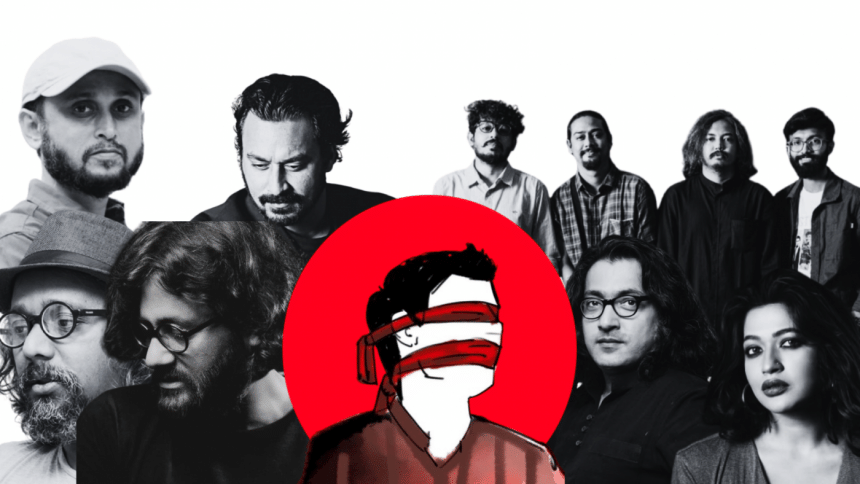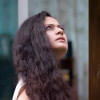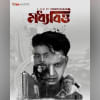Entertainment world adorned in red against injustice

In a striking display of unity and protest, numerous Bangladeshi celebrities have changed their profile pictures on social media to a solid field of red, in response to the deaths during the recent quota reform protests. This movement has quickly gained traction, showcasing the collective voice of the people against violence and injustice.
On Tuesday, July 30, social media platforms, particularly Facebook, were awash with red profile pictures as celebrities and common users alike joined the protest. This trend was spurred by a new programme announced by the coordinators of the Student Against Discrimination (SAD) Movement. They urged people to cover their faces with red pieces of cloth and upload these photos online as a form of protest against the government's call for nationwide mourning for those killed in the recent violence.
The symbolic gesture resonated widely, with people from various walks of life embracing the call. Among those showing their support were prominent filmmakers, actors, musicians, and other public figures, transforming social media into a vivid shade of red.
Director Mostofa Sarwar Farooki was among the notable personalities who changed his profile picture. He voiced his concern through a post on his official Facebook page, questioning the accountability of those in power.
"In an independent country, the public servants who were appointed to provide security to the owners of the country (the people) killed so many of us? When will those involved in these murders, those who commanded them, be punished? On one hand, there are discussions, and on the other hand, there are arrests and shootings. What kind of game is this? When will it stop? More questions have arisen: will those in power talk to the people with arrogance and pride, or with respect?"
Director Shihab Shaheen posted a photo featuring the children killed in recent violence, captioning, "I used to see leaders and public figures visiting the homes of the affected or distressed, offering comfort, inquiring about their well-being, embracing them, and sometimes even apologising. Where has that culture gone? Compassion, care, affection, sincerity, and honesty are the same for every generation! Understanding these doesn't require being Gen Z or Millennial. Basic humane behaviour breaks the generational barrier. Where have those thoughts gone? Perhaps back then, voters had some value, which is probably why."
Lyricist Prince Mahmud also expressed his thoughts on the movement, stating, "This fidgety generation neither sees the sunrise nor the sunset. They do not understand seniority, nor do they understand juniority. But when it comes to the truth, they do not hesitate for a moment to give their lives without any doubt."
Celebrities who have also shown their support include directors Mostofa Sarwar Farooki, Kamar Ahmad Simon, Akram Khan, Amitabh Reza Chowdhury, Khijir Hayat Khan, Ashfaque Nipun, Mohammad Mostafa Kamal Raz, Shihab Shaheen, playwright Leesa Gazi and Sadia Khalid Reeti, producers Redoan Rony, Sara Afreen, actors Siam Ahmed, Azmeri Haque Badhan, Golam Farida Chhonda, Zakia Bari Mamo, Mustafa Monwar, Nirab, Bipasha Kabir, Sohel Rana, Shahnaaz Sumi, Sunerah, musicians Oni Hasan, Zohad, Shafiq Tuhin, Sultan Rafsan Khan, Tashfee, Arafat Kazi, Ifaz Abrar Reza, Xefer Rahman, and Shayan Chowdhury Arnob.
Additionally, several popular Bangladeshi bands such as AvoidRafa, Shunno, Arbovirus, Arekta Rock Band, Kaaktaal, Karnival, Popeye, and Highway also joined the campaign, further amplifying the movement's reach and impact.
The red profile pictures have become a powerful symbol of protest and solidarity in Bangladesh. As more people join the movement, the call for justice and dignity grows louder, echoing through the digital landscape. This unified stand by celebrities and the public alike sends a clear message: the fight against injustice and violence will continue until accountability is achieved.

 For all latest news, follow The Daily Star's Google News channel.
For all latest news, follow The Daily Star's Google News channel. 









Comments